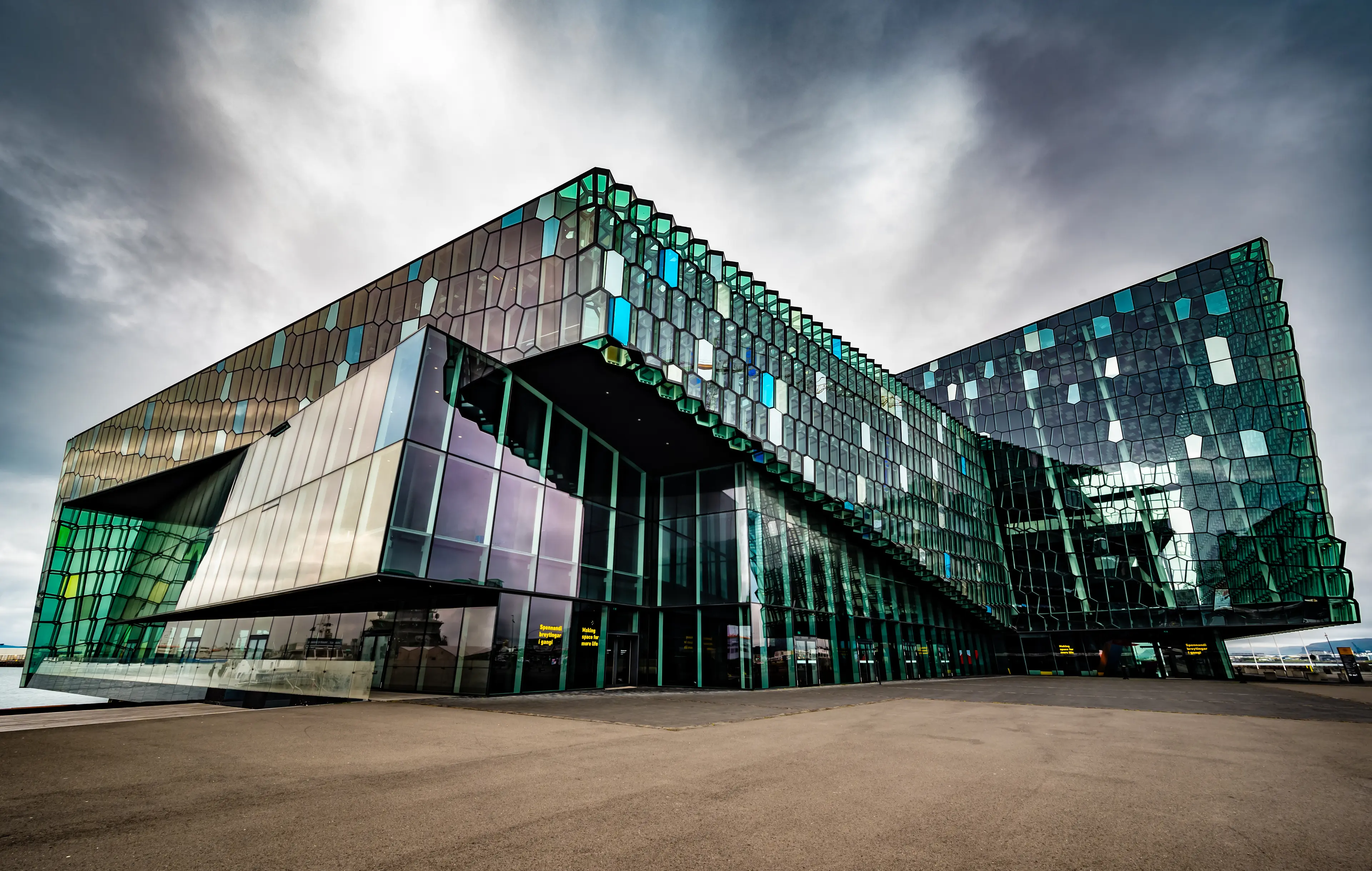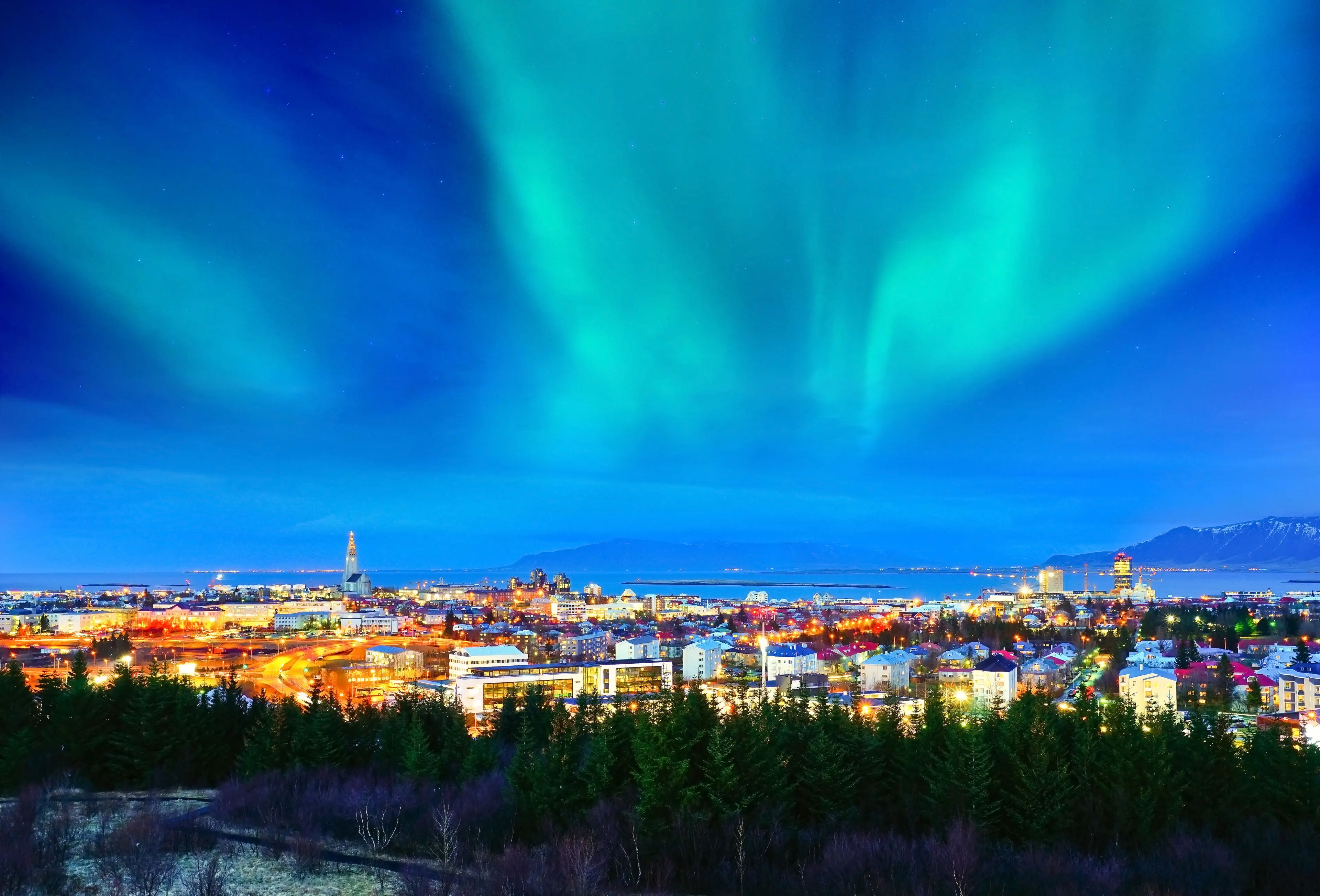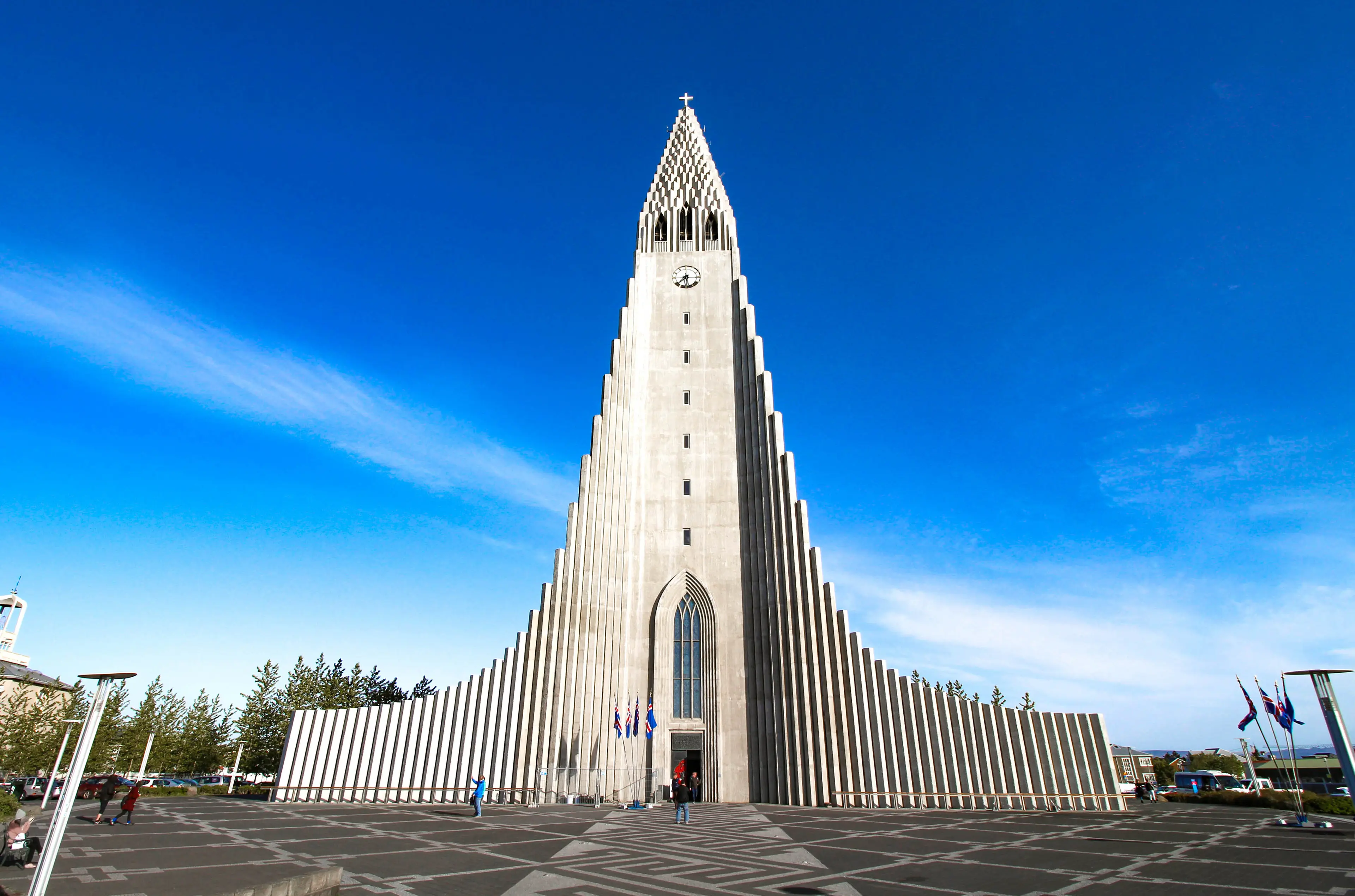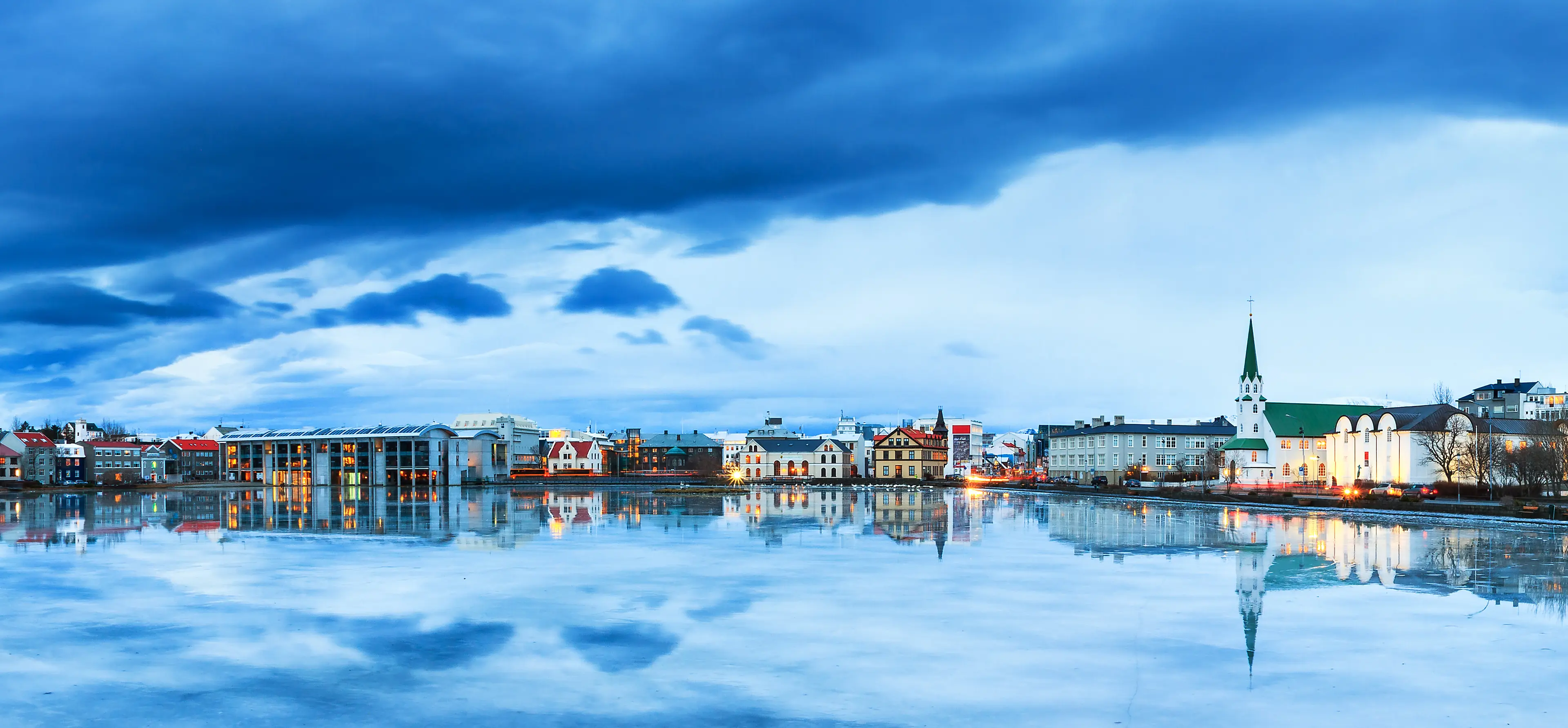3-Day Offbeat Reykjavik Adventure with Friends: Sightseeing & More
Reykjavik, Iceland
3 days
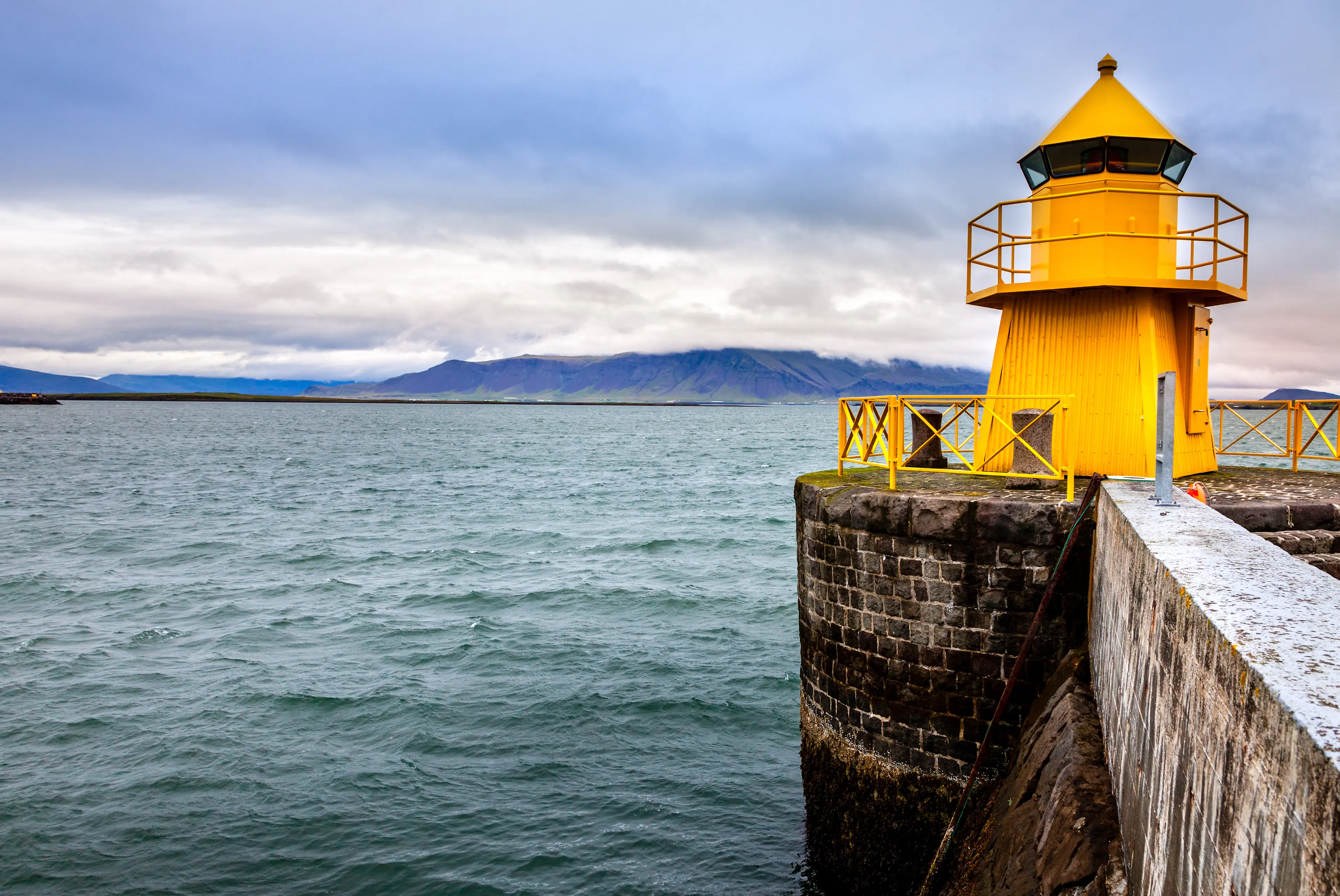
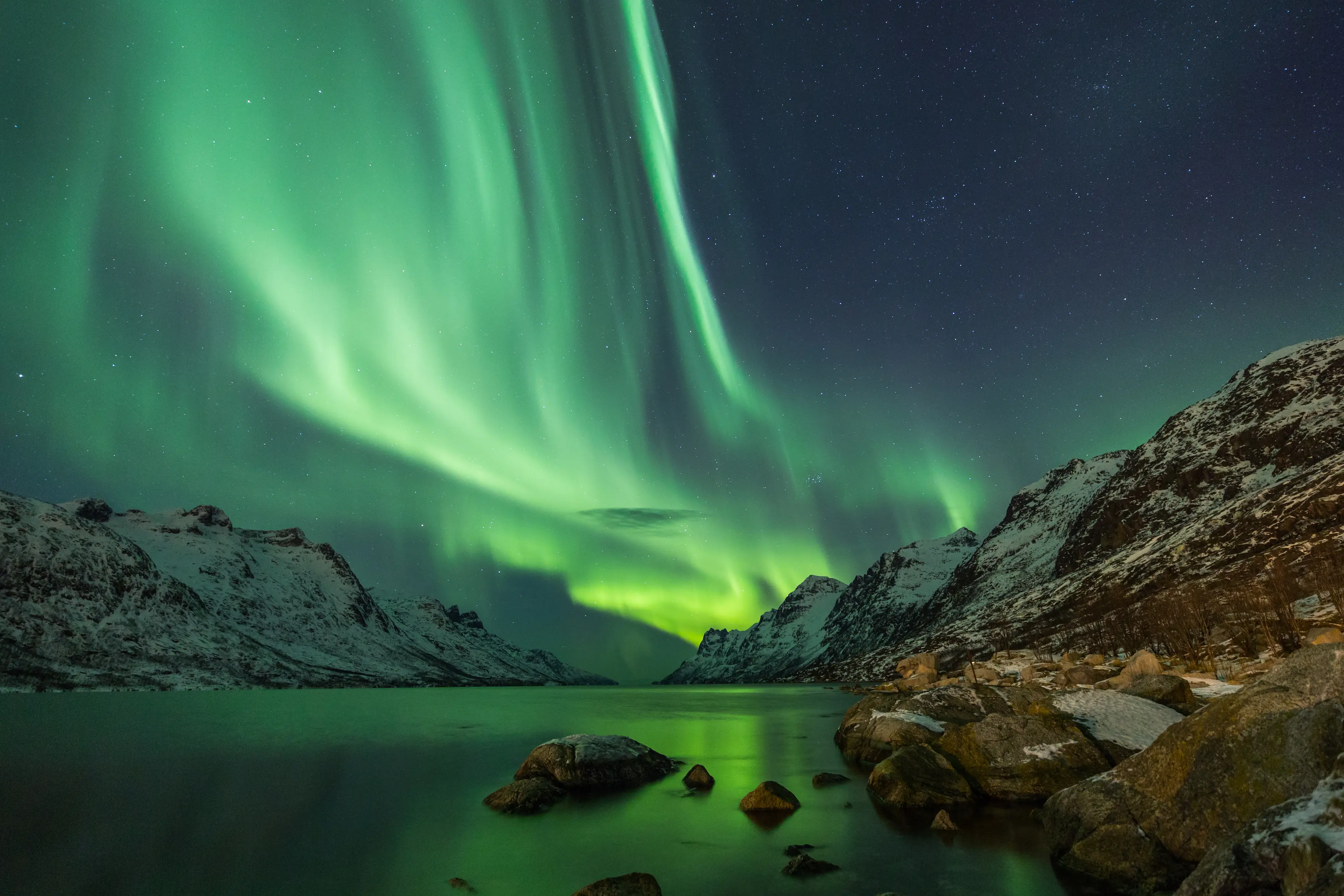
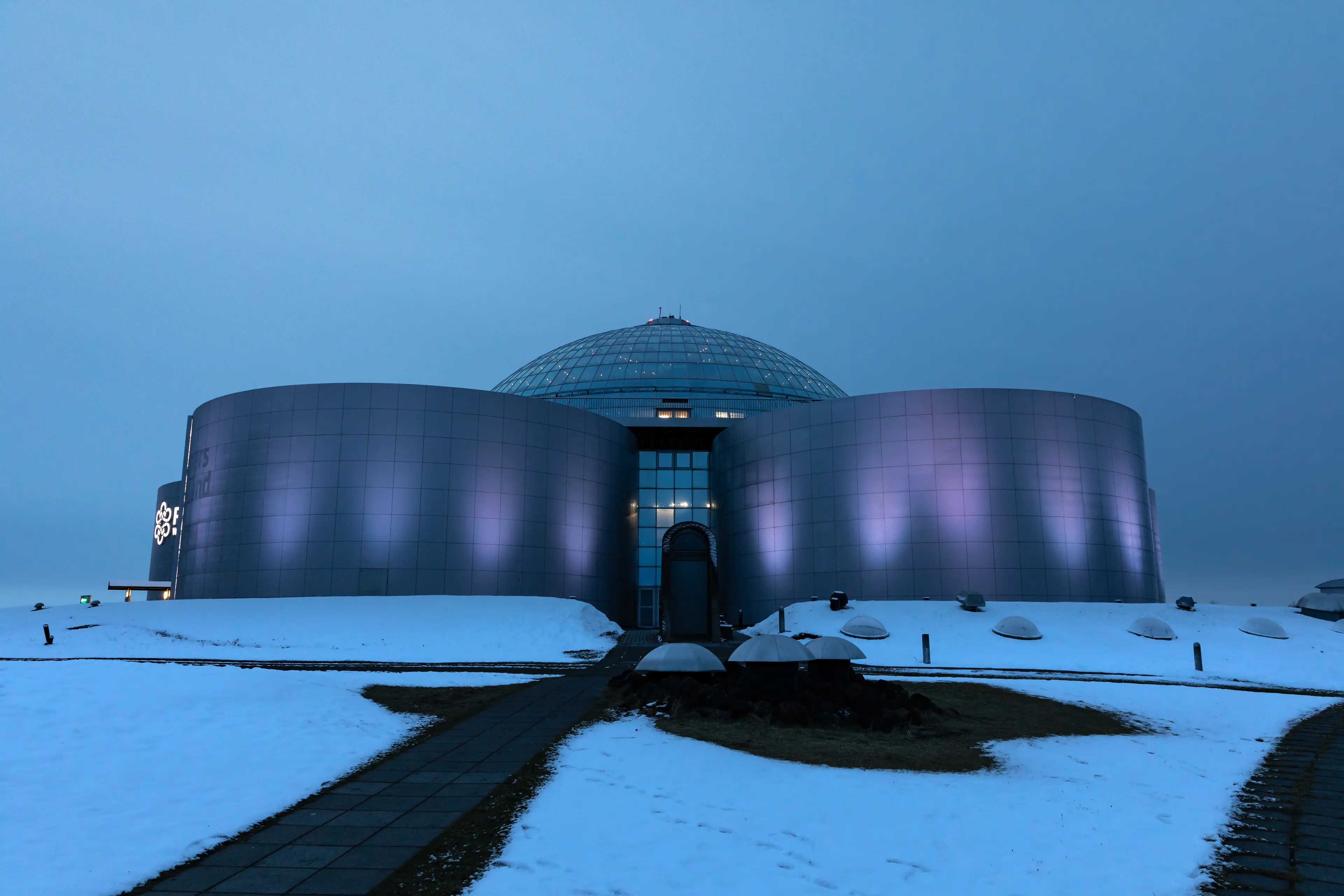
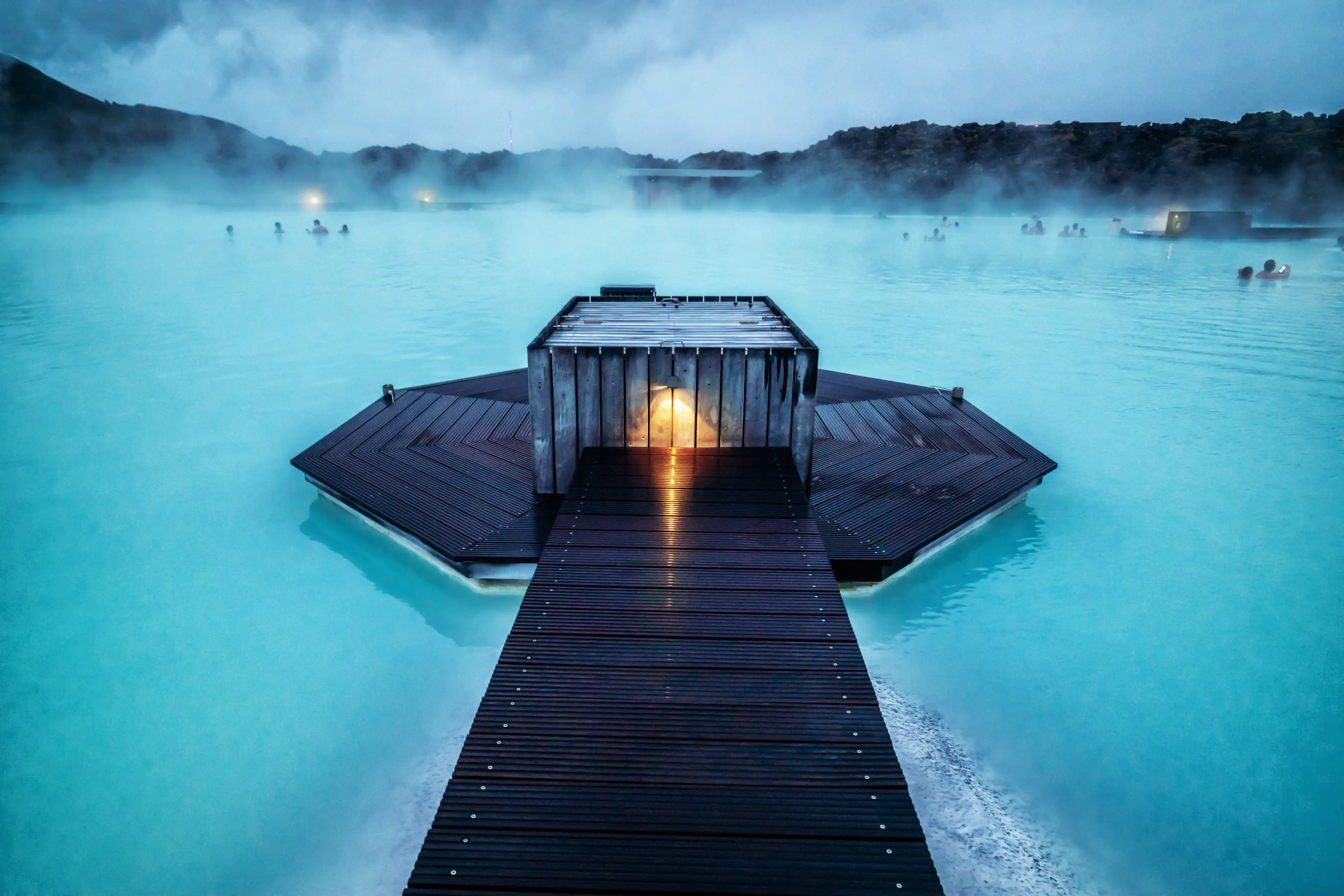

About Reykjavik, Iceland
Experience the magic of Reykjavik, Iceland's vibrant capital. This city is a gateway to a land of stunning natural beauty, from the Northern Lights to geothermal spas. Reykjavik boasts a rich history, evident in its old town with colorful houses and the iconic Hallgrimskirkja church. Enjoy the city's thriving arts scene, lively nightlife, and culinary delights featuring local seafood and lamb. Venture out to explore the Golden Circle's geysers, waterfalls, and Thingvellir National Park. Don't miss a dip in the Blue Lagoon, a geothermal spa in a lava field. Reykjavik is a unique blend of city life and unspoiled nature, offering an unforgettable adventure.
3-Day Itinerary
Day 2
Golden Circle Tour
Morning
Embark on a Golden Circle tour. This popular route includes Thingvellir National Park, the Geysir geothermal area, and Gullfoss waterfall.
Lunch
Have a picnic lunch at Gullfoss waterfall. Enjoy the stunning views while eating your packed sandwiches and snacks.
Afternoon
Continue your Golden Circle tour. Don't miss the Kerid Crater Lake, a volcanic crater lake that is a sight to behold.
Dinner
Enjoy a traditional Icelandic dinner. Try the fermented shark or the smoked lamb.
Evening
Relax in one of the city's geothermal pools. The warm waters are perfect for unwinding after a long day of sightseeing.
Day 3
Adventure in Snaefellsnes Peninsula
Morning
Visit the Snaefellsnes Peninsula. Here, you can see the famous Kirkjufell Mountain and the black sand beaches.
Lunch
Have a seafood lunch at a local restaurant. Try the fresh catch of the day.
Afternoon
Explore the lava fields and caves in the Snaefellsnes Peninsula. Don't forget to bring your camera for some amazing photo opportunities.
Dinner
Have your last dinner in Reykjavik. Try the Icelandic lamb or the Arctic char.
Evening
Take a leisurely stroll around the city. Visit the old harbor and enjoy the beautiful night views of the city.
Attractions in Itinerary (10)

1Hallgrimskirkja Church
Hallgrimskirkja Church is a Lutheran parish church in Reykjavik, Iceland. At 74.5 metres high, it is the largest church in Iceland and among the tallest structures in the country. The church is named after the Icelandic poet and clergyman Hallgrímur Pétursson.

2Reykjanes Peninsula
Marked by active volcanism under its surface, and large lava fields, allowing little vegetation. There are numerous hot springs and sulphur springs in the southern half of the peninsula.

3Bridge Between Continents
The Bridge Between Continents is a small footbridge over a major fissure which provides clear evidence of the presence of a diverging plate margin. The bridge was built as a symbol for the connection between Europe and North America. One can cross the continental divide on Leif the Lucky’s Bridge.

4Golden Circle
A popular tourist route in southern Iceland, covering about 300 kilometres looping from Reykjavík into central Iceland and back.

5Thingvellir National Park
A national park in the municipality of Bláskógabyggð in southwestern Iceland, about 40 km northeast of Iceland's capital, Reykjavík. It's known for the Alþing (Althing), the site of Iceland's parliament from the 10th to 18th centuries.

6Geysir geothermal area
A favorite stop along the Golden Circle is the highly active Geysir Hot Spring Area with boiling mud pits, exploding geysers and the lively Strokkur which spouts water 30 meters into the air every few minutes.

7Gullfoss waterfall
One of the most popular tourist attractions in Iceland. The wide Hvítá rushes southward, and about a kilometre above the falls it turns sharply to the right and flows down into a wide curved three-step staircase and then abruptly plunges in two stages into a crevice 32 meters deep.

8Kerid Crater Lake
Kerid Crater Lake is a volcanic crater lake located in the Grímsnes area in south Iceland. It's one of several crater lakes in the area, known as Iceland's Western Volcanic Zone. The caldera, like the other volcanic rock in the area, is composed of a red volcanic rock. The caldera itself is approximately 55 m deep, 170 m wide, and 270 m across. Kerid’s caldera is one of the three most recognizable volcanic craters because at approximately 3,000 years old, it is only half the age of most of the surrounding volcanic features.

9Snaefellsnes Peninsula
The Snæfellsnes Peninsula is a region in western Iceland known for its dramatic landscapes. It is home to the Snæfellsjökull National Park, which has lava fields, glacial caps, a black-pebble beach, and the iconic Kirkjufell Mountain.

10Kirkjufell Mountain
Kirkjufell Mountain is a stunningly beautiful and highly photographed mountain in Iceland. It is located on the north coast of the country's Snæfellsnes peninsula, near the town of Grundarfjörður.
Local Food and Drinks (12)

Hákarl
Hákarl is a traditional Icelandic dish made from fermented shark. It's a unique and must-try food for adventurous eaters visiting Reykjavik.

Pylsur
Pylsur is Iceland's version of a hot dog and is considered a national dish. It's a popular street food in Reykjavik, made from a blend of lamb, pork, and beef.

Skyr
Skyr is a traditional Icelandic dairy product, similar to yogurt but thicker. It's a staple in the Icelandic diet and can be found in various flavors throughout Reykjavik.

Kjötsúpa
Kjötsúpa is a traditional Icelandic meat soup, usually made with lamb and a variety of vegetables. It's a hearty and comforting dish, especially popular during Reykjavik's colder months.

Harðfiskur
Harðfiskur is a traditional Icelandic snack made from dried fish, usually cod or haddock. It's a popular snack in Reykjavik, often spread with butter.

Rúgbrauð
Rúgbrauð is a traditional Icelandic rye bread that is dark, dense, and slightly sweet. It's a staple in Reykjavik and often served with butter or smoked lamb.

Brennivín
Brennivín is a traditional Icelandic schnapps, often referred to as 'Black Death'. It's a popular drink in Reykjavik, typically served chilled and in shot glasses.

Kleinur
Kleinur is a traditional Icelandic pastry, similar to a doughnut. It's a popular treat in Reykjavik, often enjoyed with coffee.

Hangikjöt
Hangikjöt is a traditional Icelandic smoked lamb. It's a popular dish in Reykjavik, especially during the Christmas season.

Plokkfiskur
Plokkfiskur is a traditional Icelandic fish stew, usually made with cod or haddock and potatoes. It's a comforting and popular dish in Reykjavik.

Þorramatur
Þorramatur is a selection of traditional Icelandic dishes, usually served during the Þorrablót mid-winter festival. It includes a variety of foods like fermented shark, dried fish, and smoked lamb.

Mysuostur
Mysuostur is a traditional Icelandic brown cheese, made from whey. It's a sweet and creamy cheese, popular in Reykjavik and often spread on bread or crackers.
Best time to visit
The best time to visit Reykjavik, Iceland, largely depends on what you want to experience. If you're hoping to catch a glimpse of the Northern Lights, the best time to visit is during the winter months, from late September to late March. However, keep in mind that this period has shorter daylight hours and colder weather. If you're interested in exploring the natural beauty of Iceland, such as its waterfalls, geysers, and wildlife, the summer months from June to August would be ideal. During this time, you can experience the Midnight Sun phenomenon, where the sun barely sets, providing almost 24 hours of daylight. The weather is also warmer and more pleasant for outdoor activities. For fewer crowds and moderate weather, the shoulder seasons of May and September are also good options. However, weather in Iceland can be unpredictable, so it's always a good idea to pack layers and be prepared for a variety of conditions.
How to get around
Car Rental
Renting a car is a popular option for getting around Reykjavik and the rest of Iceland. It provides the freedom to explore at your own pace. Most major international car rental companies have offices in Reykjavik and at Keflavik International Airport.
Public Bus
Reykjavik has a well-developed public bus system, known as Strætó bs. Buses cover the entire city and some suburban areas. You can buy tickets on the bus or use the Strætó app to purchase tickets and plan your journey.
Bicycle Rental
Reykjavik is a bike-friendly city with numerous bike paths and lanes. Several companies in the city offer bike rentals, providing a healthy and eco-friendly way to get around.
Taxi
Taxis are readily available in Reykjavik. They can be hailed on the street, booked in advance, or picked up from taxi ranks in the city center. All taxis are metered and offer a safe and convenient way to travel.
Ridesharing
While Uber and Lyft do not operate in Iceland, there is a local ridesharing app called Hreyfill which can be used to book rides in Reykjavik.
Foot
Reykjavik is a compact city and many of the main attractions are within walking distance of each other. Walking is a pleasant way to explore the city, especially during the summer months.
Tour Bus
Several companies operate tour buses in Reykjavik, offering guided tours of the city and surrounding areas. This is a great way to see the sights and learn about the history and culture of Iceland.
Scooter Rental
Electric scooters are a fun and fast way to get around Reykjavik. Several companies offer scooter rentals in the city. However, they should be used with caution as they are not allowed on sidewalks and must follow traffic rules.
Airport Shuttle
There are several companies that offer shuttle services between Keflavik International Airport and Reykjavik. This is a convenient option for getting to and from the airport, especially for those without a rental car.
Important information
Currency ISK
Time zoneUTC 0
Driving sideRight
Emergency phone112
Drinking waterYes
Power sockets
Voltage230 V
Things to know about Reykjavik, Iceland as a first time visitor
1
The official language is Icelandic, but most locals also speak English.
2
The local currency is the Icelandic króna (ISK). Credit cards are widely accepted, even for small purchases.
3
Tipping is not customary in Iceland as service charges are included in the bill.
4
The weather can be unpredictable, so pack layers. Average summer temperatures are around 50-55°F (10-13°C), while winter temperatures average around 32°F (0°C).
5
Iceland is known for its strong winds, so pack a windproof jacket.
6
The sun sets very late in the summer and rises very early in the winter. Consider bringing an eye mask for sleeping.
7
Tap water is safe to drink and is some of the cleanest in the world.
8
Public transportation in Reykjavik is reliable and efficient. The main form of public transport is the bus, or 'strætó.'
9
Reykjavik is a very walkable city, with most attractions within walking distance from the city center.
10
Iceland uses the Europlug (Type C & F), so you may need to bring a travel adapter.
11
Iceland is one of the safest countries in the world, but it's still important to take normal precautions to protect your belongings.
12
Alcohol is expensive in Iceland and can only be purchased in government-run stores called 'Vínbúðin.'
13
The Icelandic hot dog, or 'pylsa,' is a popular fast food option.
14
Icelanders take their swimming pools seriously. There are many public pools in Reykjavik, and proper etiquette, including showering before entering the pool, is expected.
15
Iceland is very eco-conscious. Recycling is common and you'll find many places powered by renewable energy.
16
The country runs on GMT time zone. Iceland does not observe daylight saving time.
17
Iceland has a universal healthcare system. However, it's recommended for tourists to have travel insurance that covers medical expenses.
18
The emergency phone number in Iceland is 112.
19
Iceland has a high cost of living. Be prepared for high prices, especially for dining out and petrol.
20
Reykjavik has a vibrant nightlife scene, especially on weekends. However, bars and clubs tend to get busy very late, often not until after midnight.
Basic Icelandic to know as a first time visitor
English phrase | Native phrase | Pronunciation | When to use it |
|---|---|---|---|
Hello | Halló | ha-loh | Greeting someone |
Goodbye | Bless | bles | Saying goodbye |
Please | Vinsamlegast | vin-sam-leg-ast | Making a request |
Thank you | Takk | tahk | Expressing gratitude |
Yes | Já | yaw | Agreeing or confirming |
No | Nei | nay | Disagreeing or denying |
Excuse me | Afsakið | av-sa-kith | Getting attention or apologizing |
I'm sorry | Ég er leiðinlegt | yeh er lay-thin-legt | Apologizing |
Do you speak English? | Talarðu ensku? | talar-thu en-sku | Asking if someone speaks English |
I don't understand | Ég skil ekki | yeh skil eh-ki | Expressing confusion |
Where is the bathroom? | Hvar er klósettið? | kvar er klo-set-tith | Asking for directions |
How much does it cost? | Hvað kostar það? | kvath kostar thadh | Asking the price of something |
I need help | Ég þarf aðstoð | yeh tharf ath-stoth | Asking for help |
Can I have the menu, please? | Get ég sjá matseðilinn, vinsamlegast? | get yeh syau mat-say-dil-in, vin-sam-leg-ast | At a restaurant |
I would like to order | Ég vil panta | yeh vil panta | At a restaurant |
Water | Vatn | vatn | Asking for water |
Beer | Bjór | byor | Ordering a beer |
Wine | Vín | veen | Ordering wine |
Cheers | Skál | skowl | Making a toast |
Good night | Góða nótt | go-tha nott | Saying goodnight |
Packing List
Clothing
Thermal underwear
Warm socks
Insulated boots
Waterproof jacket
Waterproof pants
Warm sweaters
Gloves
Beanie
Scarf
Swimsuit (for hot springs)
Comfortable walking shoes
Casual clothes for dining out
Toiletries
Travel-sized shampoo
Travel-sized conditioner
Travel-sized body wash
Toothbrush
Toothpaste
Deodorant
Razor
Shaving cream
Moisturizer
Sunscreen
Lip balm
First aid kit
Travel documents and essentials
Passport
Driver's license (if planning to rent a car)
Credit and debit cards
Cash in local currency
Travel insurance documents
Hotel and tour confirmations
Emergency contact information
Electronics and gadgets
Smartphone
Charger for smartphone
Universal travel adapter
Camera
Charger for camera
Memory cards for camera
Portable power bank
Headphones
Miscellaneous items
Travel pillow
Earplugs
Eye mask
Snacks
Water bottle
Books or e-reader for the flight
Travel guide for Iceland
Map of Reykjavik
Reusable shopping bag
Umbrella
Sunglasses
Weather Conditions
When visiting Reykjavik, Iceland, it's important to remember that the weather can be quite unpredictable. The city experiences a subarctic climate, which means it can be cold most of the year, with average temperatures ranging from 32°F (0°C) in winter to 57°F (14°C) in summer. One of the key things to remember is that the weather can change rapidly, so it's always a good idea to dress in layers. This way, you can add or remove clothing as necessary. Waterproof and windproof clothing are also recommended, as Reykjavik can experience sudden rain showers and strong winds. Winter months (November to March) can be particularly cold, with temperatures often dropping below freezing. If you're planning to visit during this time, make sure to pack warm clothing, including thermal underwear, gloves, hats, and scarves. Snow boots with good grip are also a must, as streets can become icy. During the summer months (June to August), temperatures can reach up to 57°F (14°C), but it can still feel chilly, especially in the evenings. It's also worth noting that Reykjavik experiences long daylight hours in summer, with the sun setting as late as midnight and rising around 3 am. This phenomenon, known as the Midnight Sun, can disrupt sleep patterns, so consider bringing an eye mask. In terms of outdoor activities, always check the weather forecast before heading out, especially if you're planning to hike or explore the countryside. Icelandic weather can be harsh and change quickly, so it's important to be prepared. Lastly, remember that the Northern Lights, one of Iceland's most famous attractions, are typically visible from September to April. However, visibility depends on weather conditions, so check the forecast for clear, dark skies. In conclusion, the key to enjoying your visit to Reykjavik is to be prepared for a variety of weather conditions. Dress appropriately, stay informed about the weather, and you'll have a fantastic time exploring this unique city.
| Month | Hi / Lo (°C) | Weather Overview |
|---|---|---|
January | 2° / -3° | January is the coldest month in Reykjavik, with temperatures often dropping below freezing. It's a great time for tourists who enjoy winter activities and the Northern Lights. |
February | 3° / -2° | February is still quite cold, but the days start to get a bit longer. The Northern Lights are still visible, and winter activities are popular. |
March | 3° / -2° | March sees a slight increase in temperature, but it's still chilly. The snow starts to melt, and the days get longer, making it a good time for sightseeing. |
April | 7° / 0° | April is the start of spring in Reykjavik. The weather is unpredictable, but the longer days and melting snow make it a good time for outdoor activities. |
May | 10° / 4° | May is a pleasant month with longer daylight hours. It's a great time for hiking and exploring the natural beauty of Iceland. |
June | 13° / 8° | June marks the start of summer in Reykjavik. The days are long, with almost 24 hours of daylight, perfect for sightseeing and outdoor activities. |
July | 14° / 9° | July is the warmest month in Reykjavik. The weather is mild, and the long days make it a popular time for tourists. |
August | 13° / 8° | August is still quite warm, with long daylight hours. It's a great time for hiking, sightseeing, and experiencing the midnight sun. |
September | 11° / 5° | September marks the start of autumn in Reykjavik. The weather is cooler, but it's a great time to see the Northern Lights and enjoy the fall colors. |
October | 7° / 2° | October is a cool month with shorter days. It's a good time for tourists who enjoy the autumn colors and the start of the Northern Lights season. |
November | 3° / -1° | November is a cold month with short daylight hours. It's a good time for tourists who enjoy winter activities and the Northern Lights. |
December | 2° / -3° | December is a cold and dark month, with only a few hours of daylight. It's a great time for tourists who enjoy winter activities and the Northern Lights. |
Did you know?
Places near by Reykjavik, Iceland

Blue Lagoon
A geothermal spa in a lava field.

Golden Circle
A popular tourist route with geysers, waterfalls, and historical sites.

Vík í Mýrdal
A small seaside village known for its black sand beach.

Snæfellsnes Peninsula
A scenic area with a national park, glaciers, and wildlife.

Jökulsárlón
A large glacial lake filled with icebergs.

Akureyri
A city known for its botanical gardens and skiing.

Ísafjörður
A town known for its dramatic landscapes and wildlife.
